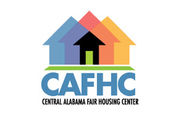From physical and mental to emotional disability issues, it’s critical to understand who and which conditions are covered legally by the Fair Housing Act and other federal laws.
Though we’ve made many strides in recent years, housing discrimination continues to remain a barrier to equal-opportunity home renting and ownership for many individuals and families. This particularly seems to hold true for people who identify as having a disability – whether physically, mentally, financially, or otherwise – as discrimination against these ‘lesser-identified’ subsets is often challenging to pinpoint. For example, a landlord might discriminate against rental applicants based on a medical diagnosis. Yet, it might be challenging for the applicant to prove discrimination on that fact alone.
To broaden the scope of equal rights, federal nondiscrimination laws provide housing protections for individuals with disabilities. The Fair Housing Act prohibits discrimination in housing and housing-related transactions because of disability, while Section 504 of the Rehabilitation Act prohibits discrimination based on disability in any program or activity receiving federal financial assistance. Even more so, Titles II and III of the Americans with Disabilities Act prohibit discrimination based on disability in all programs, services, and activities of public entities and by private entities that own, operate, or lease places of public accommodation. With this knowledge and these protections at the forefront, understanding your protections as a homeowner, renter, and/or applicant becomes more easily digestible.
What Qualifies as a Disability?
The Fair Housing Act defines a person with a disability to include any person with a physical or mental impairment that substantially limits one or more major life activities. It extends to also include individuals who are regarded as having such an impairment; and encompasses individuals with a historical record of such an impairment. Major life activities include caring for yourself, performing manual tasks, walking, seeing, hearing, speaking, breathing, and working.
It’s important to note that some of these impairments are readily visible, while others might be close to invisible. Regardless, however, the entire gambit is protected. A physical or mental disability might include (but is not limited to):
- Orthopedic, visual, speech, and hearing impairments
- Cerebral palsy
- Autism
- Epilepsy
- Cancer
- Heart disease
- Diabetes
- HIV
- Developmental disabilities
- Mental illness
- Substance abuse issues: drug addiction and alcoholism
Housing Rights of Persons with Disabilities
An individual with a disability, who is also otherwise qualified for the property, program, service, or activity, is covered by federal law. Therefore, it is unlawful to discriminate against and/or withhold fair housing opportunities to a person based on their given disability. To elaborate, “otherwise qualified” means that the individual appropriately meets the essential eligibility requirements, including, for example, income requirements for tenancy, provided those eligibility requirements are not discriminatory and can be met with or without reasonable accommodations or auxiliary aids or services necessary for effective communication.
The Extension of Reasonable Accommodations
In addition to Fair Housing protection, persons with disabilities are also legally eligible to request that reasonable accommodations be made to a property to house that individual appropriately and safely.
Various federal laws require housing providers to make reasonable accommodations modifications for individuals with disabilities. Federal nondiscrimination laws also prohibit housing providers from refusing residency to persons with disabilities, or placing conditions on their residency, since they require reasonable accommodations or modifications.
Reasonable Accommodations can include anything from a change in any rule, procedure, policy, or service that enables a person with a disability to have equal access to and enjoyment of their home, rental unity, shared community, etc. For example, this might include permitting the stay of an overnight caregiver or nurse in an apartment complex despite the property-at-large not allowing for overnight guests.
Additionally, reasonable modifications encompass physical aspects of the property that require change – such as the installation of a wheelchair ramp or brail signage posted throughout the building. By law, a person with a disability must be permitted to make reasonable modifications to their dwelling unit or to the public and common use areas if necessary for ensuring equal access and rights.
The Right to Service Animals
It’s also imperative to mention access to service animals here, as any service animal falls under the scope of Reasonable Accommodations. Under the Fair Housing Act, housing providers cannot refuse to make reasonable accommodations in rules, policies, practices, or services. This extends to the right to service and assistance animals, whether or not “pets” or “animals” in general are allowed within the property at large.
Reasonable Accommodation requests involving assistance animals might include, for example:
- A request to live with an emotional support animal at a property where a housing provider has a no-pets policy
- A request to waive the pet deposit, animal fee, or other rule as to an assistance animal
Acting on Your Fair Housing Rights
Understanding your Fair Housing Rights is essential to ensuring equal opportunity and fair accessibility. It is the goal of the Central Alabama Fair Housing Center (CAFHC) to ensure equal housing opportunity for all people living in central Alabama – those with a disability – but also regardless of race, color, national origin, religion, gender, or family status.
If you believe you have experienced discrimination on the basis of disability, visit the CAFHC website to view our legal assistance services. We also provide countless Fair Housing Resources, including printable materials, disability resources, and local Fair Housing assistance.
Additionally, it is important to know that you can also file a complaint directly, and regardless of geographic location, with the U.S. Department of Housing and Urban Development.

